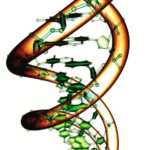Uncover Our Key Capabilities
Discover Our Distinctive Expertise and Unparalleled Capabilities, Setting the Standard for Excellence in Every Endeavor

Pharmacology
Pharmacology is the study of how drugs interact with biological systems. In the context of drug development, this involves understanding the effects of a drug candidate on the body, including its mechanism of action, efficacy, potency, and potential therapeutic uses. Elaborating on this category involves:

Mechanism of Action (MoA)
- Investigating how the drug interacts with its target molecules, such as receptors or enzymes.
- Understanding the biochemical and physiological changes induced by the drug.
Pharmacodynamics (PD)
- Studying the biochemical and physiological effects of the drug on the body.
- Determining the duration of action, onset of action, and other dynamic properties.
Efficacy Studies
- Conducting experiments to determine the drug’s effectiveness in treating the targeted disease or condition.
- Assessing the dose-response relationship to establish the optimal therapeutic dose.
Drug-Receptor Interactions
- Characterizing the binding affinity and kinetics of the drug to its target receptors.
- Investigating allosteric modulation and other types of interactions.

Toxicology
Toxicology focuses on the study of adverse effects of drugs and chemicals on living organisms. In drug development, toxicology studies are crucial for assessing the safety profile of a drug candidate. Elaboration on this category includes:

Acute and Chronic Toxicity Studies
- Assessing the effects of a drug candidate when administered over short and long periods.
- Identifying dose-dependent toxic effects and establishing no observed adverse effect levels (NOAEL).
Carcinogenicity Studies
- Investigating the potential of the drug to induce cancer in animal models.
- Conducting long-term studies to assess tumor formation and progression.
Genotoxicity and Mutagenicity Studies
- Evaluating the potential of the drug to cause genetic damage or mutations.
- Testing in vitro and in vivo to assess DNA damage and chromosomal aberrations.

Safety Pharmacology
- Assessing the effects of the drug on vital physiological systems, such as cardiovascular, respiratory, and central nervous systems.
- Evaluating the risk of adverse events like arrhythmias, seizures, or respiratory depression.

Pharmacokinetics / ADME
Pharmacokinetics (PK) focuses on how the body processes a drug, including absorption, distribution, metabolism, and excretion (ADME). Understanding PK is crucial for determining dosing regimens and predicting drug behavior in humans. Elaborating on this category involves:

Absorption Studies
- Evaluating the rate and extent of drug absorption after administration (e.g., oral, intravenous).
- Assessing factors affecting bioavailability, such as solubility and permeability.
Metabolism Studies
- Investigating the biotransformation of the drug in the body, often involving liver enzymes.
- Identifying metabolites and assessing their activity and potential toxicity.
Distribution Studies
- Examining the distribution of the drug in various tissues and organs.
- Assessing factors influencing drug distribution, such as protein binding and tissue permeability.
Excretion Studies
- Studying the elimination of the drug and its metabolites from the body, often through urine or feces.
- Assessing renal clearance, hepatic clearance, and elimination half-life.

CMC & Formulations
CMC (Chemistry, Manufacturing, and Controls) and formulations focus on the chemical composition of the drug, its manufacturing process, and the final dosage form. Elaboration on this category includes:

Drug Substance Characterization
- Analyzing the chemical structure, purity, and stability of the active pharmaceutical ingredient (API).
- Establishing specifications for identity, strength, and impurities.
Stability Studies
- Testing the stability of the drug product under various storage conditions (e.g., temperature, humidity).
- Establishing shelf-life and storage recommendations.
Formulation Development
- Creating the final dosage form of the drug, such as tablets, capsules, or injections.
- Optimizing formulations for stability, bioavailability, and patient convenience.

Process Validation
- Validating the manufacturing process to ensure consistency and quality of the final product.
- Performing scale-up studies to transition from lab-scale to commercial-scale production.

Regulatory
Our regulatory expertise encompasses all activities related to regulatory approval of a drug candidate for marketing and sale. This includes:

Regulatory Strategy Development
- Creating a roadmap for navigating regulatory requirements and submissions.
- Identifying regulatory pathways (e.g., FDA, EMA) based on the drug’s characteristics and intended use.
Regulatory Interactions
- Engaging with regulatory agencies through meetings, communications, and submissions.
- Addressing regulatory queries, providing updates, and seeking feedback on the development program.
Preclinical Regulatory Submissions
- Preparing and submitting regulatory documents for preclinical studies (e.g., IND applications).
- Ensuring compliance with regulatory guidelines and requirements.

Regulatory Compliance Audits
- Conducting comprehensive audits to ensure adherence to regulatory guidelines and requirements throughout the preclinical development process.

Project Management
Effective project management is the cornerstone of success in the biotech and pharmaceutical industries. While the science behind drug development is crucial, it is the project management that ensures progress towards goals, orchestrates complex tasks, and optimizes the most valuable asset: time.
At PreclinIQ, we recognize the pivotal role of project management in driving programs towards success. Our PMP certified project managers deliver excellence towards your project needs..

Detailed Schedule and project documents
- Detailed schedule development with key milestones from drug concept to IND (Investigational New Drug) filing.
- Key Project Documents : charter, communication plans, resource matrix, KPI metrics.
Budget Management
- Create detailed and customized budgets for each stage of the project, accounting for all anticipated expenses, including personnel, materials, equipment, and external services.
- Monitor project expenses in real-time, track budget utilization against planned expenditures, and provide regular financial reports and identify cost-saving opportunities.
Risk Management
- Identification and Assessment: Proactively identifying potential risks and uncertainties.
- Mitigations and Contingency Planning: Developing and implementing strategies to mitigate identified risks

Stakeholder Communication
- This service involves crafting tailored communication materials for various stakeholders, including investors and executives. These documents provide comprehensive updates on project progress, highlight key milestones, and outline associated risks.
- Projected timelines: With our Monte Carlo Risk-Based Scheduling service, we leverage advanced Monte Carlo techniques to generate probabilistic projections of milestone completion and project timelines.
Trusted by 40+ leading biotech organizations
From stealth startups to Fortune 500 companies, PreClinIQ is the trusted partner for driving innovation, achieving milestones, and advancing the forefront of preclinical science.

